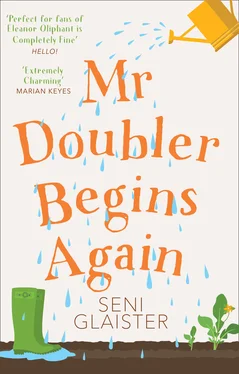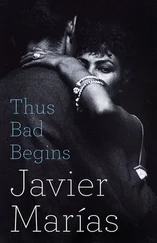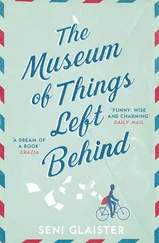1 ...6 7 8 10 11 12 ...20 Julian, impatient with his sister’s feeble enrolment to his cause, cut her off sharply. ‘How long has this, er, relationship been going, Dad? How deeply have they got their claws in?’
He looked up at the three pairs of eyes watching him.
‘Oh, don’t worry. I shan’t do anything daft. I’m not at that stage yet.’
‘Well, tell us when you are about to do something daft, Dad.’
‘I did something daft when I allowed my genes to reproduce themselves,’ Doubler said, to himself. And he continued to eat his food in silence.
Chapter 5
Overnight, the thick cloak of disquiet Doubler felt after Sunday lunch with his family wrapped itself firmly round the seed of anxiety already generated by the three Manila envelopes lurking in the drawer. The envelopes hadn’t been clamouring for his attention, but Doubler was painfully familiar with the impact of leaving one mouldy potato among a sack of sound potatoes and he feared the contents of the envelopes may well be festering and could perhaps become more volatile through lack of attention.
The weekends were always long, but he now only had a number of hours before Mrs Millwood returned to Mirth Farm. Doubler steeled himself, determined to pluck up the courage to ask for Mrs Millwood’s assistance. There was nobody else in the world better equipped to help Doubler find the right solution and he knew that his first instinct, to ignore the threat altogether, was undoubtedly the most dangerous.
Despite his resolve, Doubler chose not to open the third envelope immediately. There would be time to read it, but there was an order to his day that needed to be adhered to. Leaving the envelopes in the dark drawer, their potency in abeyance for a little longer, Doubler prepared his tea.
Doubler warmed the pot while measuring out a big scoop of his specially blended tea leaves. He drained the pot, added the leaves and then poured in boiling water, taking the pot to the still-boiling kettle and filling it at the Aga to ensure minimal loss of heat. Doubler believed the leaves should be allowed to mix freely with the boiling water to fully release the flavour so he didn’t use any strainer inside the pot, choosing instead to strain the tea as he poured it. Part of his Sunday evening ritual was to mix enough of his blend to keep him going for a full week, preferring to leave the bulk packs of black tea in a cool, dark corner of the pantry and enjoying an inordinate sense of accomplishment when he had judged the week’s requirement perfectly. His blend (equal quantities of Keemun, Assam and Ceylon leaves) provided him the versatility he needed from a tea: something light in colour with a smooth and mild taste whose well-rounded character suited both a morning and an afternoon cup.
His teapot, cup, saucer and milk jug set out before him, Doubler sat at the kitchen table and spread out all three envelopes, examining the contents in the order they had arrived. The substance remained consistent. Mr Peele wanted to buy his farm.
The first letter had arrived, conventionally, by post, and once he’d digested it, Doubler had paid it scant attention, tidying it away in the dresser drawer without too much further thought.
The second letter, however, was markedly different in both tone and manner of delivery. It had been hand-delivered, which meant that somebody had been to Mirth Farm in person.
It was this intrusion that had rung the alarm bells in Doubler’s head and he swiftly responded with a proportionate stepping-up of his security. Doubler was fortunate that, while ostensibly a man with no friends, he had many people indebted to him and it was very easy to call in a favour, particularly as he leveraged this influence so rarely. Those beholden to him were eager to be of use and within two days of a brusque phone call, two men in a white van had arrived to install the security camera on the corner of Doubler’s yard. This was the camera whose vigilant sweep now kept a watchful lookout for Mirth Farm trespassers.
Doubler worked meticulously through each letter, making careful notes in his journal of the most salient points, though these were sometimes difficult to extract from the ornate vernacular that intensified with Peele’s mounting irritation. What struck Doubler was the very great haste with which Peele had crescendoed from a generous cash offer to an outright demand, but nothing had prepared him for the unveiled threats of the latest letter. Peele was clearly very used to getting his own way and, perhaps an impatient man, had been quickly affronted by Doubler’s lack of response.
Should Doubler have responded to the first or second letter, even just to say a polite no? This was a question for Mrs Millwood. Mrs Millwood might not have a clue about property negotiation, but she had a very good instinct for people and she would certainly have an opinion.
The cash offer in the first letter was very good; Doubler had recognized this immediately. Even given the tiny sum for which he had originally purchased Mirth Farm and allowing for his lack of attention to rising property prices, he knew it was unarguably generous. In fact, it was hard to imagine that anyone should want to part with such a very large sum of money in exchange for his home. It was evident, Doubler deduced, that Peele was not trying to steal Doubler’s farm or trick him in any way. But the size of the offer demonstrated to Doubler how very badly Peele wanted to own Doubler’s property and he had made his determination abundantly clear by coming to Doubler with a proposal that was intended to be irresistible. And when Doubler had not even acknowledged receipt of the offer, Peele had accelerated the urgency by pointing out the reasons that Doubler might regret his lack of pliability.
The second letter swiftly introduced some legalese. The letter began with the words ‘Without Prejudice’, which in themselves were intended to be perceived as a threat. Doubler had already confirmed the definition with Mrs Millwood and so he knew that these words meant the letter could not be used in a court of law against the originator, but Doubler was not entirely sure why he and Peele might end up locked in a legal battle. Could Doubler be sued for not responding to the first letter? Was it an offence not to enter into a negotiation that you wanted no part of? Doubler didn’t believe, logically, that this could be the case, but the very words ‘Without Prejudice’ were troublesome to him.
In his second letter, Peele used the language of courtrooms to forcibly suggest that Doubler must accept his generous offer within fourteen days or the offer would be withdrawn and Peele would thereafter be forced to pay fair market value. Doubler knew, logically, that this threat was nonsensical because he didn’t want to sell his home at any price.
Doubler referred back to the earlier letter and glanced ahead to the third. They had not only accelerated in urgency, they’d accelerated in impenetrable speech. The first letter contained no ‘notwithstanding’s, the second contained two, and the third was riddled with them.
The gist of the third letter was one of unbridled intimidation, and Peele was very specific about the nature his threats would take. Peele insisted that he fully intended to increase his use of pesticides and warned that his liberal use of genetically modified crops might negatively impact on Doubler’s own organic status and, therefore, his bottom line. This was a cause for grave concern to Doubler and he underlined the observation in his notebook. Doubler wasn’t worried so much about his organic certification from an economic point of view: while his farming methods were indeed organic (he had begun his farming life not knowing any other way and he had failed to pay attention to progress so had failed to adopt more productive methods subsequently), his farming income did not depend on his organic certification.
Читать дальше












